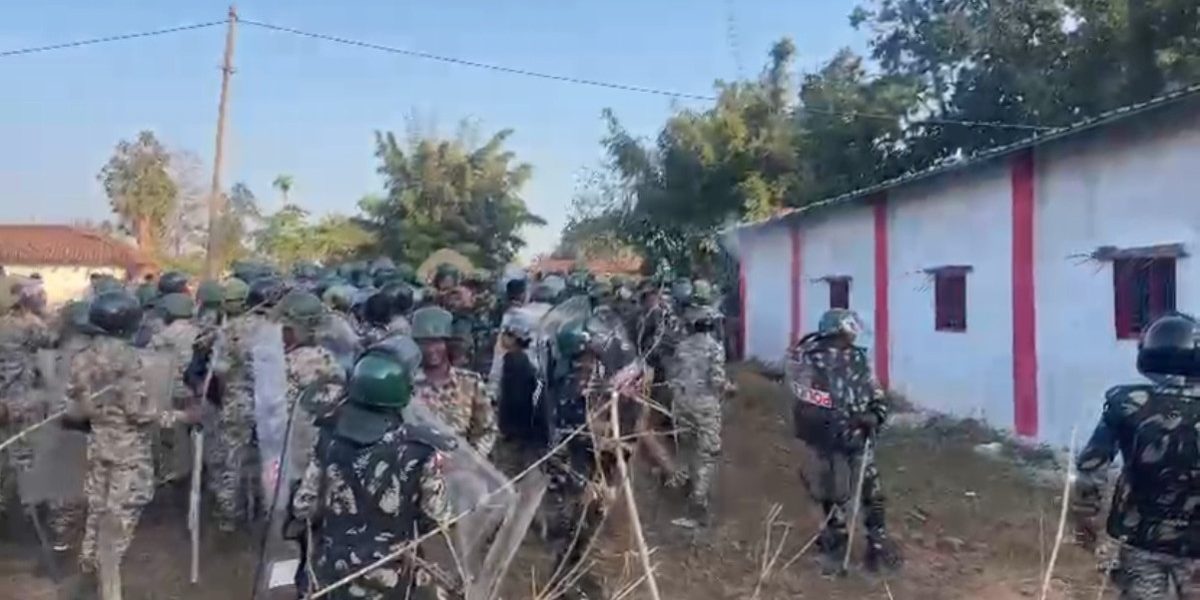(International Christian Concern) – According to The Wire, a Hindu priest in India’s Chhattisgarh state called for the beheading of Christians at a rally attended by members of the Bharatiya Janata Party (BJP). Many Christians in Chhattisgarh fear that the priest’s comments will spark a new wave of anti-Christian violence across the state.
Speaking at a rally on October 1, Swami Parmatmanand called for the targeted killings of Christians involved in alleged forced conversions. The rally was attended by many members of the BJP, including Ramvichar Netam, Nand Kumar Sai, and Anurag Singh Deo.
“Behead them… those who come for conversion,” Parmatmanand said to those gathered for the rally. “Now you’ll say that I am spreading hate although I’m a saint. But it’s important to ignite the fire sometimes. I am telling you; anyone who comes to your house, street, neighborhood, village, don’t forgive them.”
Parmatmanand is a prominent Hindutva leader in Chhattisgarh and is known for his violent anti-minority rhetoric. In the past, he has called for the murder of individuals involved in cow smuggling.
“Cow-killers should be shot with glass bullets,” Parmatmanand said in 2017.
The October 1 rally, entitled ‘Stop Religious Conversions’, was organized by Sarwa Sanatan Hindu Raksha Manch, a coalition of Hindutva supporters in Chhattisgarh. In recent months, BJP politicians and Hindutva leaders have used the issue of religious conversions to drum up political support and anti-minority sentiments.
Across India, the false narrative of mass fraudulent conversions to Christianity and Islam is used to justify laws limiting religious freedom and anti-minority violence. In nine states where anti-conversion laws have been enacted, including Chhattisgarh, radical Hindu nationalists are allowed to terrorize religious minorities with near impunity.
Using the narrative espoused by Parmatmanand and other nationalists, radicals falsely accuse their victims of engaging in religious conversions to justify violence. Unfortunately, those accusations are often accepted by local authorities.
This story first appeared on persecution.org





